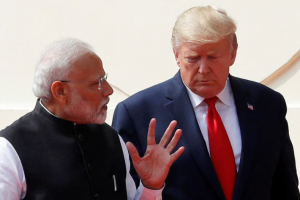India’s markets watchdog has “drawn a blank” in its investigations into suspected violations in overseas investments in the Adani group, a court-appointed panel said.
Shares of companies of the coal-to-airports conglomerate, controlled by billionaire Gautam Adani, were up between 1.2% to 7% in late trade on Friday in a largely flat wider market.
The group’s listed companies lost more than $100 billion in market value earlier this year after US-based Hindenburg Research raised several governance concerns.
Also on AF: India Regulator Warns Against Hasty End to Adani Group Probe
The market rout led India’s Supreme Court to ask markets regulator the Securities and Exchange Board of India (SEBI) to probe some of the allegations by Hindenburg.
The court asked SEBI to submit its findings to a six-member panel formed in March, which included a retired judge and veteran bankers.
“The foundation of SEBI’s suspicion that led to investigations into the overseas entities’ ownership is that they have ‘opaque’ structures,” said the panel in a report dated May 6.
“The ultimate chain of ownership above the 13 overseas entities is not clear.”
Despite involving various Indian and overseas agencies in the investigation across multiple countries, “SEBI has drawn a blank”, the report said. Trying to prove who had invested in foreign portfolio investors who then pumped money into Adani could be an arduous task, it added.
“It is evident that such an exercise could be a voluminous one but potentially a journey without a destination,” the panel said. “It would be a humongous task to figure out who the ultimate beneficial owner is.”
Investigation ongoing
On Wednesday, the apex court granted SEBI additional time until August 14 to complete its investigation into possible violations of securities law and regulatory disclosures by the Adani group. The court initially wanted it done by May 2.
SEBI is investigating alleged breaches of related-party transaction rules, public shareholding norms and share price manipulation.
Related-party transaction rules lay down practices to be followed when a listed company is involved in a transaction with another party, while public shareholding norms set out the minimum shareholding of a listed company required to be held by the public.
‘Suspicious trading’ before Hindenburg report
Beside flagship Adani Enterprises, other group companies include edible oils business Adani Wilmar, Adani Ports, Adani Green Energy, Adani Transmission, Adani Total Gas, Adani Power, broadcaster NDTV and cement units ACC Ltd and Ambuja Cements.
Since the Hindenburg report was released on January 24, those shares are down anywhere between 10% and 82%.
“While the report may initially boost Adani stocks and investor confidence, the ongoing uncertainty and potential for further revelations from the extended SEBI investigation may continue to impact the group’s market performance,” said Sonam Srivastava, founder at Wright Research.
The panel said, citing SEBI, that there was evidence of a build-up in short positions in Adani group stocks ahead of the Hindenburg report, and profit-taking afterwards.
“Suspicious trading has been observed on the part of six entities,” it said.
It was not possible to conclude whether there had been regulatory failures regarding price manipulations, the panel said.
- Reuters, with additional editing by Vishakha Saxena
Also read:
Probe Into Some Adani Offshore Deals for Disclosure Violations
Adani Seeks More Time to Pay $4bn Debt
All Eyes on India Market Regulator Amid Adani Share Sale Probe
Indian Protesters Say Modi Favoured Adani as Losses Top $110bn
Dow Jones Drops Adani Enterprises
Hindenburg Asks Adani to ‘Sue in US if Serious’























